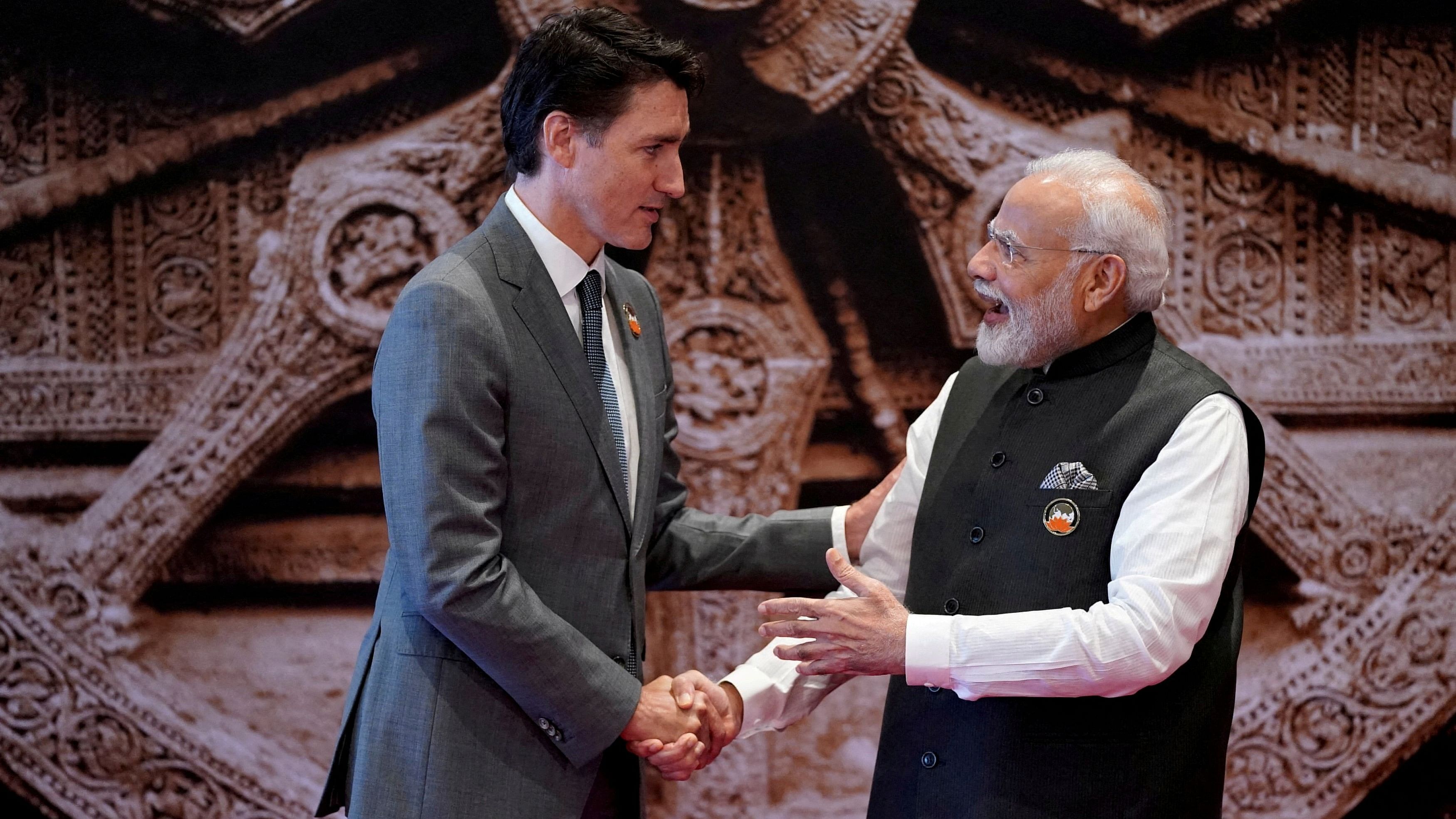
File photo of PM Narendra Modi with Canadian counterpart Justin Trudeau for the G20 Summit, in New Delhi.
Credit: Reuters File Photo
“New Vigour, New Steps” was the title of the joint statement that India and Canada issued after Prime Minister Narendra Modi and his then counterpart Stephen Harper met in Ottawa on April 15, 2015. Modi thanked Harper for changing the course of the relations that had suffered a series of setbacks in the past – primarily due to Canada’s reactions to India’s nuclear tests in 1974 and 1998 and India’s disappointment over Canada’s lack of interest in curbing the activities of the Khalistanis, even after the terrorists had blown up Air India’s Kanishka aircraft midair on June 23, 1985, killing all the 329 people onboard.
The promise of new momentum in India-Canada ties, however, remained unfulfilled. Harper’s Conservative Party was voted out of power by the end of 2015 as Justin Trudeau led the Liberal Party to a decisive victory in the federal elections and took over as the new prime minister – following the footsteps of his father, Pierre Trudeau, who had held the top office in Ottawa from March 1980 to June 1984.
The senior Trudeau had in 1982 turned down New Delhi’s request to extradite Khalistani Babbar Khalsa International’s leader Talwinder Singh Parmer from Canada to India and thus ended up inadvertently allowing him to mastermind the 1985 bombing of the Air India aircraft. The junior too went down the same way and ignored New Delhi’s concerns over the continuing campaign against India by the Khalistani Sikh extremists across Canada.
DH Illustration
Credit: Deepak Harichandan
The relations between New Delhi and Ottawa have already been on a downward spiral over the past few years and went into a free fall this week after Justin Trudeau lent credence to the allegation of the extremist organization, Sikhs for Justice, that India had a role in the murder of Hardeep Singh Nijjar, the commander of the Khalistani Tiger Force, in Canada. The two sides over the past few days expelled each other’s diplomats and issued tit-for-tat travel advisories. India called Canada ‘a safe haven’ for terrorists – a rebuke it so far kept exclusively reserved for its next-door arch-rival Pakistan. Trudeau reiterated the allegations against New Delhi and media outlets quoting sources reporting that Canada had communication intercepts to corroborate the claim about the role of India in the killing of Nijjar. New Delhi also stopped issuing visas to citizens of Canada and asked Ottawa to downsize its diplomatic and consular missions in India. The negotiation for a trade deal is another casualty of the diplomatic row.
Nijjar was one of India’s most wanted fugitives, but he was not only living freely in Canada but also heading a gurdwara in the North American country.
Ottawa chose to go public with the allegation against New Delhi just days after the 18th G20 summit, which Modi hosted on September 9 and 10. India succeeded in persuading the United States and the other G7 nations to accept the Delhi Declaration, which was adopted at the end of the summit without condemning Russia for its military aggression against Ukraine. As India was celebrating a grand success in its balancing act between its ties with the US and the rest of the West and its decades-old strategic partnership with Russia, Trudeau dropped the bomb. He claimed that he had discussions not only with US President Joe Biden, French President Emmanuel Macron, British Prime Minister Rishi Sunak and Australian Prime Minister Anthony Albanese before going public about the investigation into India’s role in killing a citizen of Canada.
The reactions from Washington DC, Canberra and London have been cautious, with all insisting that the investigation should first reach its conclusion. New Delhi is confident that the US, the UK, France and Australia might make some comments to avoid disappointing Canada, but would not go too far, given the importance of their relations with India as a bulwark against China.
Trudeau has been invoking freedom of speech to justify his government’s reluctance to act against the Khalistani Sikh extremists who ran a campaign portraying the diplomats of India in Canada as ‘killers’. He thus allowed the right to expression to degenerate into a license for the extremists to feel free to make hate speeches, as the SFJ leader Gurpatwant Singh Pannun recently made, urging Canadian Hindus to relocate to India.
